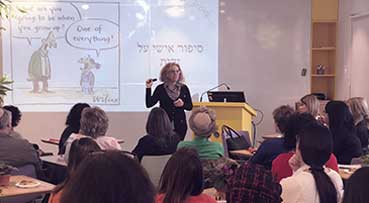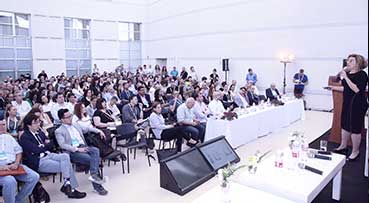At Emily’s office, she’s the go-to person for advice on sensitive matters, preferred over direct managers or HR. Known for her attentive listening and problem-solving skills, Lucy has become a trusted confidante. Grace, in an unofficial capacity, plays a crucial role in helping new employees settle in. Olivia is always the one organizing birthday collections and departmental events, while Sofia’s extensive knowledge about everyone makes her the primary source for the latest updates.
In the organization, women often engage in invisible, behind-the-scenes work that goes unpaid and unrecognized, yet this very work hampers their career progress. The societal norms that cast women as nurturers and caregivers in their personal lives often extend into their professional roles. In the US, women spend, on average, two additional hours daily on household and family tasks compared to men, amounting to a whole month each year. This pattern repeats in the workplace, where women undertake critical yet unseen tasks essential for team and organizational functioning. These tasks range from emotional labor, such as managing and regulating others’ emotions, to informal mentoring and relationship management, all aimed at facilitating smoother work processes.
This situation exemplifies the disparity between an organization’s declarations and actions. The invisible labor performed by women is precisely what organizations claim to value when they emphasize the importance of culture. The 2021 Lean-In study on women at work reveals this contradiction: 87% of managers acknowledged the critical need to support employee well-being. However, only 25% actually considered such support in employee evaluations and compensation. In essence, women are discreetly carrying out the work deemed vital for fostering a supportive and inclusive corporate culture, yet that very culture fails to recognize or reward their efforts.
This disparity creates a cycle where women’s contributions are overshadowed and their time and energy diverted away from career advancement opportunities. The effect is twofold. Directly, investing time in unrecognized activities hinders women’s ability to engage in tasks that lead to promotions, opportunities, and leadership positions. Indirectly, their engagement in unseen work often leads them to support roles, significantly limiting their visibility and recognition in the workplace. Given our finite resources—time, mental effort, and emotional energy—allocating them to unappreciated or unrewarded activities means sacrificing the opportunity to use these resources for strategic work that could advance careers. The outcome is less recognition, fewer opportunities, and slower career progression, impacting even salary.
Organizations are overlooking a crucial aspect in today’s work environment, which demands not just human connections but deep, emotional, and value-driven interactions between people and their work. The tasks currently deemed ‘invisible’—those of emotional support and connectivity—are vital for organizational success. This kind of work, traditionally undertaken by women within family settings, is just as essential in the workplace. If promoting gender equality and fairness isn’t motivation enough to recognize and value the invisible labor of women in your organization, then consider the clear business imperative. Organizational culture encompasses not only what is said and done, but also what is left unsaid and undone. With this in mind, here are some actionable steps:
Bring the invisible work into the spotlight, particularly that which is fundamental to fostering an organizational culture and empathetic management. Activities such as mentoring, assisting new employees, providing support, and even organizing social events should be valued and rewarded when they contribute to team building and enhancing corporate culture. Peter Drucker’s timeless wisdom, “You get what you measure,” holds true here. Without identifying and rewarding the aspects of work you wish to strengthen, altering your organizational culture will remain an elusive goal. This situation presents a unique opportunity to directly link action with cultural transformation.
Create management awareness and help them map and distribute the invisible work among team members. Reflecting on my early career experience, I recall attending a meeting in an all-male engineering department. As the only woman there, I was immediately asked to take the meeting minutes. Fortunately, a mindful manager intervened and established a rotation for this task, ensuring that each person took a turn. This prevented my professional role at the table from being diminished to just note-taking, preserving my position as an equal contributor.
Transform invisible work into tangible projects, making it visible and accountable, thereby ensuring managers and employees recognize its contribution to the overall workload. One vital lesson from my early days in time management was documenting the full extent of the workday, including activities not traditionally seen as ‘work’, like sorting emails or taking breaks. This approach is applicable here too. When tasks like “mentoring new employees” or “assisting a colleague in preparing for a management presentation” are recorded as specific items in a work diary, they become acknowledged and managed tasks, visible to all involved.
Match invisible work with individual development needs. Tasks that are often overlooked in day-to-day operations can become opportunities for personal and professional growth when assigned thoughtfully. Rather than simply asking “Who’s free?” or “Who usually volunteers?”, consider the purpose of the task and who would benefit most from it. This approach could reveal that the least sociable team member might actually gain valuable experience from mentoring or guiding a new employee. Similarly, someone who typically shies away from social events could be the perfect candidate to organize the next one, offering them a chance to develop new skills and engage differently with their colleagues.
Create Women Career Programs. Empowering women in their career development requires more than just a checklist of skills. Researching for this article on the invisible tasks women undertake in organizations, I consulted Chat GPT for advice to help women gain visibility. I received the typical list: speak confidently, seize presentation opportunities, set boundaries, promote achievements, and build a support network. While these are valuable, they don’t fully address the unique challenges women face in career management. In today’s workforce, employers play a crucial role in employee development. This includes the need for specific development programs for women. It’s not that men don’t need career management tools—they do—but the nuances differ. Women’s approach to learning, experimenting, and navigating career paths requires tailored strategies. Therefore, creating specialized career management programs for women is essential. These programs should focus on developing networking skills, mentoring, navigating organizational politics, building a personal brand, and identifying paths for development and advancement, specifically catering to the unique needs and challenges women face in their careers.
The necessity of recognizing the invisible work performed by women in the workplace extends beyond issues of fairness or equality; it’s a crucial business imperative. Acknowledging and valuing these contributions is vital for cultivating an inclusive, empathetic, and cohesive organizational culture. Doing so enables the full utilization of your workforce’s potential and facilitates their development, laying the foundation for an equitable future. In such an environment, every individual is not only actively engaged but also visibly seen, heard, and appreciated for their unique contributions. This approach ensures that every member of the team is recognized for the value they bring, creating a more balanced and productive workplace.


![large-AX1A2125-2[1] large-AX1A2125-2[1]](https://niritcohen.com/wp-content/uploads/elementor/thumbs/large-AX1A2125-21-pnzedcs72atx5aeurqytqdiihxixlq02re9mlz805s.jpg)






